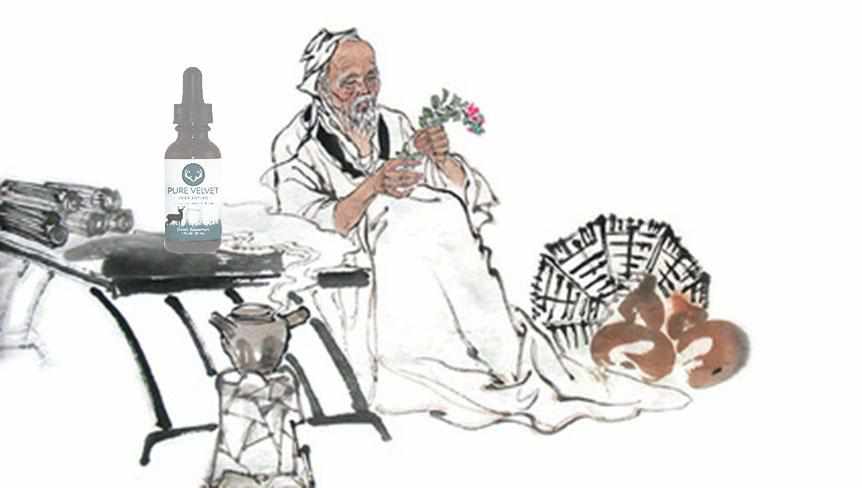 Most commonly known as the male sex hormone, testosterone is important for more than just a great sex drive. In fact, testosterone plays a role in a number of bodily processes and is found in both men and women. Admittedly though, the hormone is most important for men and plays an essential role in the development of masculine characteristics and overall growth. If you are concerned about your testosterone levels or simply want to know exactly what role this bodily chemical plays in your body, keep reading to learn more.
Most commonly known as the male sex hormone, testosterone is important for more than just a great sex drive. In fact, testosterone plays a role in a number of bodily processes and is found in both men and women. Admittedly though, the hormone is most important for men and plays an essential role in the development of masculine characteristics and overall growth. If you are concerned about your testosterone levels or simply want to know exactly what role this bodily chemical plays in your body, keep reading to learn more.What Is Testosterone?*
Testosterone is a hormone that is produced in the testicles of men and ovaries of women although in much smaller amounts. Production of this hormone significantly increases throughout puberty and then takes a dip after age 30.
Hormones of any kind are considered the body’s “chemical messengers." As such, they are produced in and transported throughout the body to stimulate certain cells or functions in the body. Most notably, testosterone regulates sex drive and controls sperm production. However, it also functions in a number of other ways throughout the body. For example, it has a part in bone and muscle mass as well as red cell production and mood.
Why Is Testosterone so Important?*
Testosterone has a role in regulating many of your body’s systems as well as regulating several of your body’s processes. With that, optimal testosterone levels are important for a number of reasons, including:1.) Maintain a healthy heart and circulatory system
Your heart is responsible for pumping blood throughout your body and providing both your muscles and organs with the oxygen they need to perform well. Testosterone contributes to the production of red blood cells in your bone marrow. As such, research has found that low levels of this sex hormone are tied to reduced cardiovascular function and increased cardiovascular risk.
2.) Reduce body fat
Testosterone has a part in regulating insulin production, glucose usage, and fat metabolism in your body. When each of these components is in balance in your body, your overall body fat decreases, and, in turn, muscle mass increases. However, the opposite is also true. If you have low testosterone levels, your body fat will begin accumulating.
3.) Maintain strong bones
This hormone also has a part in maintaining bone mineral density in your body. Decreasing bone density raises your risk of osteoporosis and dangers associated with weak bones, including injury and decreased athletic performance. Research has indicated that maintaining your levels of testosterone can actually increase your overall bone density as you age.
4.) Improve memory and cognitive function
Research also indicates that men whose testosterone levels are in the optimal range are less likely to develop diseases of the memory, like Alzheimer’s. Likewise, there is evidence that suggests there is a connection between testosterone levels and mental abilities, such as verbal memory and processing speed.
5.) Improve sex drive
It likely goes without saying; nevertheless, testosterone does play an important part in libido and sexual performance. Not only does testosterone rise as a response to sexual arousal and activity, but individuals with higher testosterone levels also tend to have greater sexual activity.
6.) Regulate mood and energy level
Individuals with low testosterone tend to exhibit higher rates of depression, fatigue, and overall irritability. If your testosterone levels are optimal, though, you will have a healthier mood, energy level, and approach to life.
What Are the Side Effects of Low Testosterone Levels?
While the testosterone present in the body naturally decreases after age 30, some individuals experience a greater upset in the natural levels of the hormone in the body. This change can cause a number of different health concerns as well as impact the overall quality of your life. Some of the most common side effects of low testosterone levels include:
- Reduced sexual desire
- Fewer erections
- Infertility
- Increased body fat
- Decreased muscle mass
- Decreased bone density
- Increased fatigue
- Poor temperature control
- Reduced cholesterol metabolism
- Insomnia
- Increased depression
- Increased irritability
- Decreased self-esteem
- Decreased body hair
The only <a href="https://www.webmd.com/erectile-dysfunction/qa/how-do-i-know-if-i-have-low-testosterone">sure way</a> to know if your testosterone levels are out of whack is to visit your doctor. He or she will listen to your symptoms and likely order a blood test to measure the amount of testosterone present in your blood. Testosterone levels fluctuate throughout the day, however, so several measurements will need to be taken to get the most accurate assessment of your overall health. If you are experiencing any of the above symptoms or otherwise suspect that your testosterone levels are low, it would benefit you to consult your doctor regarding your concerns.
How Can You Increase Testosterone?*
While your doctor may automatically suggest hormone replacement therapy, you may want to consider other options. Replacement therapy is obviously one way to go, but it can often be difficult to get the exact amount of synthetic hormone right. Likewise, this method can actually cause a number of unpleasant side effects as well. Alternatively, you may benefit from natural ways to increase your testosterone level with fewer side effects, such as:
- Exercising and lifting weights
- Eating a better balance of protein, fat, and carbs
- Minimizing your stress levels
- Increasing your vitamin D intake
- Taking a daily multivitamin
- Improving your sleep quality and quantity
- Avoiding estrogen compounds, such as BPA, parabens, and other chemicals
The Bottom Line on Testosterone*
As much as testosterone affects your sex drive, it also plays a role in other important processes and functions in your body. As such, maintaining an optimal testosterone level is important for preserving your overall quality of life. If you are concerned with low testosterone levels or have already been diagnosed with low T, there are a number of steps you can take to restore your natural hormone levels and get your life back.
What are your thoughts? Have you experienced lower testosterone levels as you grow olders? What are some solutions you have tried to increase your T-levels.


